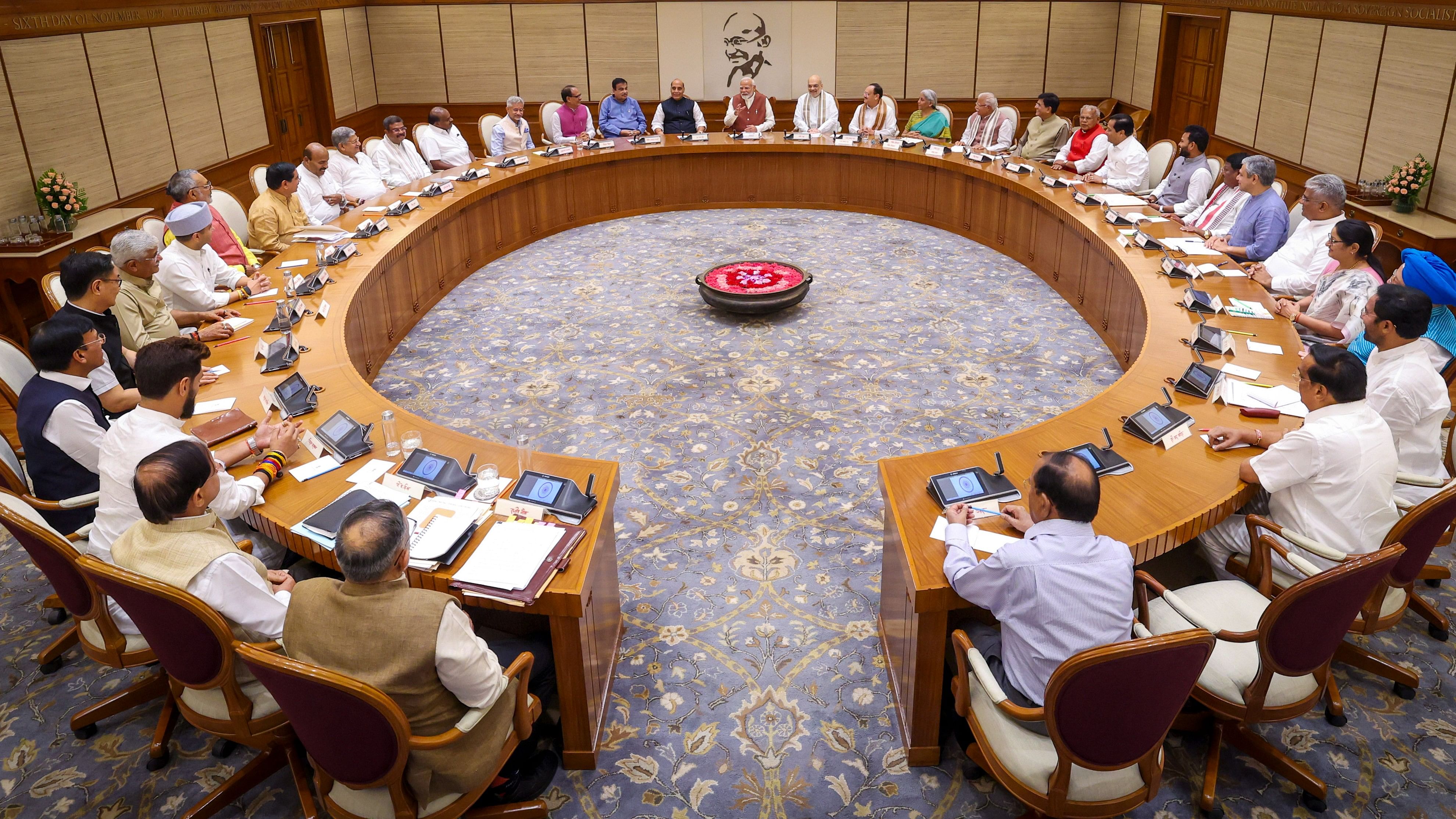
Prime Minister Narendra Modi chairs the first meeting of his new Cabinet, attended by the newly-inducted ministers, at the prime minister's 7, Lok Kalyan Marg residence, in New Delhi, Monday, June 10, 2024.
Credit: PTI Photo
The months-long election process in the country has concluded with the swearing-in of a new council of ministers under Prime Minister Narendra Modi. Modi has started his third consecutive term as Prime Minister as the head of a coalition government with 71 other ministers. He has retained most of his senior ministers from the previous government and has given space to his National Democratic Alliance (NDA) allies. The government therefore represents continuity as well as change. It not only represents a wider India but gives voice and relevance to politics practised differently from the BJP. But the dominance of the BJP is clear from the composition of the ministry. The allies have been given only 11 positions though the government is crucially dependent on them for survival. Most important ministries will remain with the BJP ministers. Some senior BJP leaders from the states have also joined the ministry.
But the government will be different because its policies, programmes and image will need to be different from the previous government’s. This is not only because the government has other parties with different views and interests but also because the Prime Minister and his party have to heed the message of the election and learn lessons from it. The BJP will have to go back to the politics that it practised two decades ago, and the Prime Minister will have to learn how to run a coalition government. He has led only a single-party government till now and has exercised complete control over it, while only nominally keeping the NDA coalition going. He seems to have realised the needs and demands of his new role. He spoke about the NDA as an organic and successful alliance and said that while a majority is needed to run a government, consensus is needed to run a country. He made two other important points. One is the need for co-operative federalism which provides room for both regional and national aspirations. The other is the idea that the Opposition opposed the government, not the country. These are important realisations and should guide him when he traverses the new territory before him.
The government is geographically representative because the NDA has a spread all over the country. Various communities, castes and social groups are also represented. But it will be noted that there is no Muslim presence in it, though there is token Christian presence. It is wrong to deny 14% of the population any representative in the Union council of ministers. There are only seven women among the 72 ministers. That is not even a strength of 10%, and is a far cry from the claims made about raising women’s position in all areas of life, including politics and government.